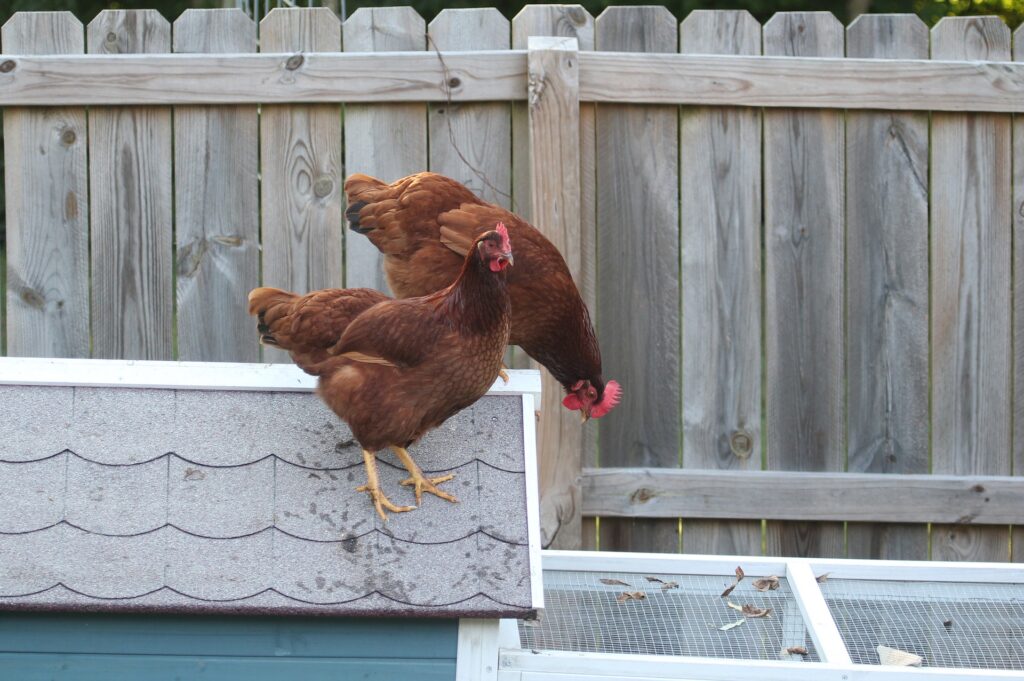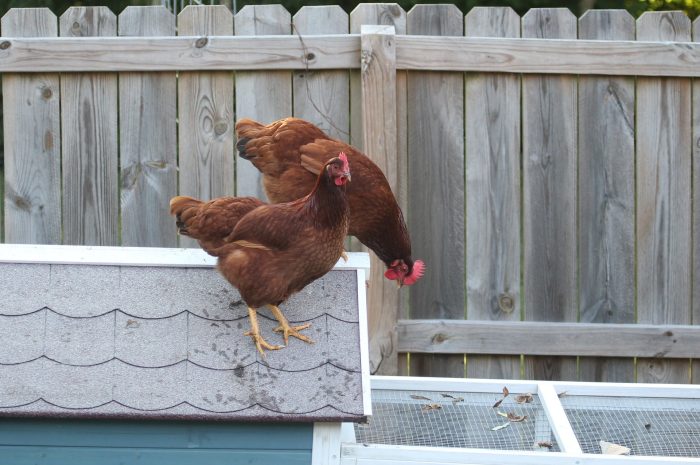This classic American breed came about in the late 19th century, and is an excellent dual-purpose breed, providing both meat and eggs. You can expect to harvest between 200 to 300 brown eggs per year from one, making them excellent layers, while also having rich-flavored meat should you choose to process them as well.
This makes the Rhode Island Red an excellent dual-purpose meat and egg chicken breed. But when can you expect to begin enjoying these benefits? When do Rhode Island Reds start laying?
When Do Rhode Island Reds Start Laying
The Rhode Island Red, like most chicken breeds, will start laying at 18 to 20 to weeks of age. However, there are some outside factors which can impact their production! Keep reading if your chickens are past this point and you need some tips on how to get them to start laying.

What If My Rhode Island Reds DON’T Lay At 20 Weeks?
Don’t get too upset if they don’t start laying at 20 weeks right on the dot. Some animals do need more time than others to mature and you should be patient. However, if it’s been quite a bit past that mark, you may need to start looking at other factors as the cause for them not laying.
Are Your Birds Stressed Out?
Animals that are stressed do not behave the way they normally would. In the case of chickens, they may be inclined to not lay eggs if they are feeling this way. Stressors for chickens could include fears of predators, harassment from dogs (yours or neighbors), weather and temperature concerns, etc.
Start by making sure your birds feel safe and protected from predators like foxes and hawks by re-inforcing their coop or runs. Make sure neighborhood dogs are not chasing them around, and perhaps try to add some privacy by way of fencing or natural privacy hedges to shield them and make them feel more comfortable.
Check Their Nutrition
Egg laying takes a lot of out of you. Those eggs will pull nutrition from the chicken’s body and if it’s in short supply, they either won’t lay at all or production quality will be severely reduced. Protein is one of the big ones, but calcium and other nutrients are also important.
Make sure your chickens are getting enough to eat, especially if you have a lot of birds, and be sure that the food you’re feeding them has at least 18% protein content. This can greatly help with getting chickens to lay eggs if you are having issues.
Mystery Egg Hunt
Are you absolutely sure they are not laying? In many cases, free range birds will simply sneak off to a dark, quiet place to lay eggs if they don’t feel safe doing it in their coop. Or, sometimes – just because they want to! Make sure to check around your yard for these kinds of areas and watch the birds to see where they go.
You may actually have a lot of eggs – you just don’t know it!
In closing, the Rhode Island Red is an excellent chicken breed for the beginner homesteader! They’re a great low maintenance farm animal that can add a ton of value to your homestead, whether you have acres to work with, or even just a small suburban backyard.

Tanya, both a nurturing stay-at-home mom and a skilled crafter, is the creative force behind our blog. As the co-founder of Romney Ridge Farms & Crafts, she’s the editor and curator. She also runs the Romney Ridge Farms & Crafts social media accounts where we post new patterns for you to enjoy.





